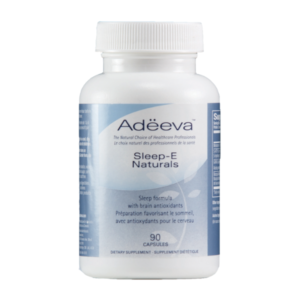
Harnessing the Hidden Powers of Melatonin: A Multifaceted Elixir of Youth
Source: J Frontiers of Physiology (2020)
Lifestyle Medicine Update (December 14, 2022)
Introduction:
Melatonin, best known for regulating sleep, is a health superstar. Declining with age, melatonin affects sleep quality, making it a popular sleep aid. But its role extends beyond slumber; it’s a potent antioxidant, regulates blood pressure, and promotes fat burning. Melatonin modulates insulin, fights inflammation, and influences longevity genes. Research suggests supplementing melatonin around 40 may reduce age-related diseases, enhance immunity, aid weight loss, and protect the heart.
From Sleep Aid to Anti-Aging Superstar: Melatonin’s Surprising Journey
Melatonin, the hormone known for its role in regulating sleep patterns, has emerged as a star player in the world of health and longevity. As we age, melatonin levels decline, often resulting in poor sleep quality, making it a go-to sleep aid for many. In fact, melatonin supplements have skyrocketed in popularity, with use growing by over 500% in the last two decades, rising from a mere 0.4% of the population in 1999-2000 to 2.1% by 2017-2018 (source).
Yet, while many are familiar with melatonin’s sleep-enhancing qualities, few are aware of the myriad other health and longevity benefits it brings to the table. This humble hormone is more than a mere slumber aid – it doubles as a potent antioxidant that safeguards critical body tissues, including the heart and brain. It steps in as a guardian of blood pressure regulation and switches our metabolism into fat-burning mode. But the surprises don’t stop there. Melatonin even kicks our brown fat activity into high gear, helping us torch excess calories and radiate energy as heat (thermogenesis), a powerful defence against weight gain (source).
The Metabolic Marvel: Melatonin’s Role in Weight Management and More
Melatonin boasts a remarkable ability to favorably modulate insulin, leptin, and lipid secretions, all of which play a pivotal role in weight maintenance and the prevention of type 2 diabetes. It indirectly tames the release of inflammatory cytokines, a critical factor in managing age-related arthritic conditions. Furthermore, melatonin acts as an indirect stimulator for the synthesis of two vital antioxidants, glutathione and heme-oxygenase-1, shielding our tissues from free radical damage tied to aging and cancer. Notably, certain immune cells, prostate, and breast cells harbor melatonin receptors, and when triggered by melatonin, they thwart crucial steps in cancer development in the prostate and breast while boosting immune system function (source).
Melatonin’s Role in Weight Loss
In a 2014 study featuring 56 postmenopausal women, melatonin stepped into the spotlight once again. It was found that adding a 5 mg melatonin supplement to a standard weight loss diet led to significant weight loss improvements compared to the non-supplemented group. In just 16 weeks, participants experienced a noteworthy drop in BMI, plummeting from approximately 29 to 27, a substantial transformation. The researchers also cited evidence suggesting that reduced melatonin secretion during autumn and winter months could trigger increased appetite and lead to weight gain. This underscores the potential value of melatonin supplementation during the fall and winter, helping stave off unwanted weight gain (source).
Melatonin’s Protective Role in Heart Health
In a 2020 animal study featured in the journal “Frontiers of Physiology,” melatonin’s ability to prevent heart damage related to obesity was evident. Obese mice given melatonin supplementation exhibited less heart damage compared to their non-supplemented counterparts, who faced increased heart weight, heart hypertrophy, and elevated blood pressure. Notably, melatonin supplementation also shielded the heart muscle’s mitochondria (energy-producing powerhouses), reduced heart muscle inflammation, and activated the Sirtuin1 longevity gene. When switched on by melatonin, the Sirtuin1 enzymes acted as epigenetic switches, igniting fat-burning and blood sugar-regulating genes, blood pressure-regulating genes, antioxidant synthesis, mitochondria biogenesis, and inflammation-reducing genes (source).
A Fountain of Youth? Melatonin and Aging
The Sirtuin1 longevity gene awakened by melatonin is an essential element of the equation. It serves as an epigenetic switch that controls fat metabolism, blood pressure, antioxidant production, mitochondria health, and inflammation levels, acting as a sentinel against the aging process. In a 2017 report from the journal “Pineal Research,” melatonin’s ability to stimulate the Sirtuin1 longevity gene emerged as a crucial protector against aging, neurodegenerative conditions (such as Alzheimer’s and Parkinson’s), cancer, and a positive influencer of immune system function (source).
The Ageless Secret: Melatonin as an Anti-Aging Ally
In light of this wealth of research, it appears prudent to consider melatonin supplementation for general anti-aging purposes around the age of 40. This approach may help reduce the risk of a wide range of age-related diseases and bolster immune system function, thus fortifying defences against infections and cancer. Additionally, melatonin enhances fat-burning and elevates the efficacy of weight loss programs. It also holds the promise of preventing some of the heart damage commonly witnessed in overweight individuals, potentially reducing the risk of heart attacks and congestive heart failure – conditions often encountered in this high-risk group. Melatonin’s profound effects extend beyond just sleep quality. Its anti-aging properties, along with its role as an anti-inflammatory, antioxidant, immune modulator, and fat-burning agent, have made it a compelling candidate for those without sleep issues. Perhaps most significant is the revelation that melatonin supplementation activates key longevity genes, particularly Sirtuin-1, in recent scientific discoveries (source).
References:
- Sirtuin1 role in the melatonin protective effects against obesity-related heart injury. Frontiers of Physiology. March 11, 2020.
- Walecka-Kapica E et al. The effect of melatonin supplementation on the quality of sleep and weight status in postmenopausal women. Prz Menopauzlny. 2014; 13(6): 334-338.
- Mayo JJ.C. et al. Melatonin and sirtuins: A “not-so unexpected” relationship. J Pineal Research. January 21, 2017.
Dr. Meschino
Recommended Supplements

Dr. James Meschino
ABOUT THE AUTHOR
Dr. James Meschino, DC, MS, ROHP, is an educator, author, and researcher having lectured to thousands of healthcare professionals across North America. He holds a Master’s Degree in Science with specialties in human nutrition and biology and is recognized as an expert in the field of nutrition, anti-aging, fitness, and wellness as well as the author of numerous books.



